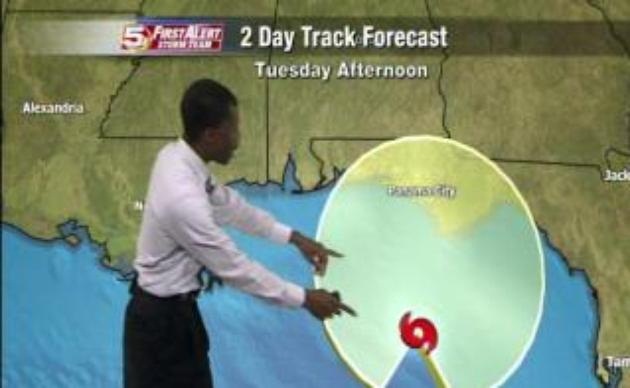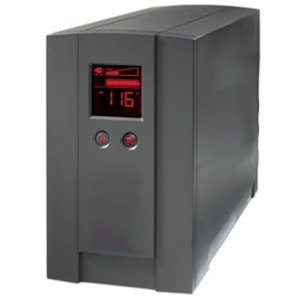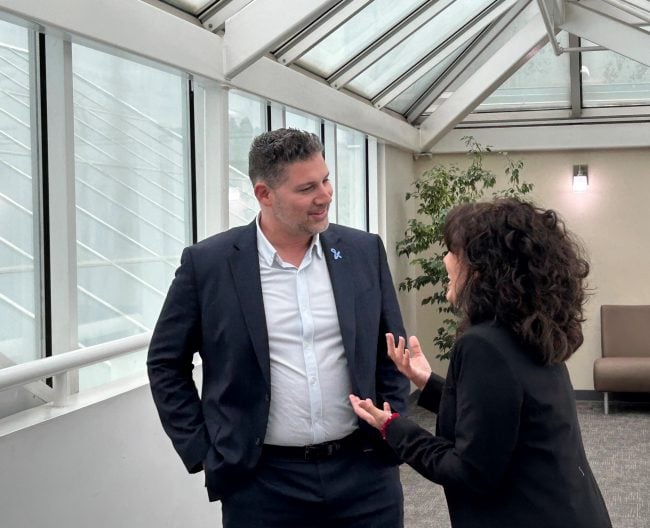“To the cloud!” cries the frustrated computer user in a recentTV ad when the flight got canceled.
|“The cloud is everywhere!” touts the service providers trying tosell the latest and greatest white puffy stuff.
|“Put your vital documents in the cloud!” champions the storageproviders at the latest disaster recovery conference.
|Enter Tropical Storm Debby. A mere widespread gust of windaccompanied by occasional downpours of rain. No big deal,right?
I live in Apalachicola, Fla., just a few miles from where thecenter of that storm crept across the Gulf of Mexico. A couple ofbeautiful oak trees and a few tall pine trees left much of the citywithout power.
|No problem. After waiting a few minutes to see if the powerinterruption was just a temporary blip, I braved the wind and rain,went outside, pulled out my emergency generator, topped the tank,gave a few hearty pulls on the starter rope and it roared tolife.
|The lights came on in my house. The phones worked. Therefrigerators and freezers kept everything at the propertemperature. We had TV to watch the 24-hour news tell us how bad wehad it.
|The generator power brought my UPS back to life, my computer,router, modem, printer all worked beautifully – wehad Internet – instant gratification looking atthe current radar/satellite composite images and computer estimatesof the future storm track.
|We were all set. Isn't life wonderful? As long as nothing on thecircuits switched on or off, and as long as everything continues towork properly, we're sitting pretty.
|Now take a quick step back into time, when our Congress, in itsinfinite, omniscient wisdom, passed a law dictating use of ethanolin gasoline. “Good for the ecology,” shouted the proponents.“Greenhouse gas reduction with ethanol!” shouted others. “Carbonfootprint reduction is our goal,” shouted still more.
| Since that wonderful moment, theentire country has gassed up their lawn mowers, weed eaters, andyes, emergency generators with ethanol-laden fuel. It works greatas long as it is used every day, like the automobiles.
Since that wonderful moment, theentire country has gassed up their lawn mowers, weed eaters, andyes, emergency generators with ethanol-laden fuel. It works greatas long as it is used every day, like the automobiles.
Let it sit for a couple of days, or weeks, or months, and thatsame, wonderful ethanol eats away at rubber seals and tubing, andbreaks down gasoline leaving lacquer components to settle in thebottom of gas tanks, carburetor bowls and low spots in fuellines.
|This sludge gets sucked up into the engines when they are firedup. For larger engines, these byproducts can flow through theorifices and jets and are eventually burned. For the smallerengines, they gum up the orifices and jets, and the gasoline motorsdie.
|However they don't die a pain-free death. It's more like the flythat sails through the Raid-riddled air en route to that piece offresh cake Mom just baked — it gets slower and slower, startssputtering and stops flying, and finally dies in a series of noisy,buzzing circles on its back on the tabletop before finally ceasingall motion.
|Back to the present. My generator suffered from just thismalaise. First it wouldn't run unless I had the choke partiallyclosed, and I was able to keep it running for hours like that.Because it wasn't at full throttle, every time the freezer orfridge would kick in, the frequency would slow down.
|Remember my UPS? Well it did just what it was supposed to do —it sensed low voltage and frequency, and took all mycomputer equipment off-line. They lastedabout 20 minutes until the UPS battery failed. So long cloud.
equipment off-line. They lastedabout 20 minutes until the UPS battery failed. So long cloud.
Once the load on the generator returned to a steady state, theUPS would take line power, but it was usually after the completeshutdown. Eventually, as the fuel mixture going to the generatorgot leaner and leaner, the engine began racing faster and faster,until the generator's internal overspeed sensor took it off lineand it stopped producing any power at all.
|We were sitting back in the dark again. No TV. No fans. Nocoffee. No microwave.
|Oh, yes, no cloud!
|Now, I know, it's easy to say mine was an isolated incident thatwouldn't affect a real enterprise solution, at least not in thesame way I suffered.
|But take another ride on the time machine — this time back to2005 and Hurricane Katrina. I was fortunate enough to deliver arelief truck to Biloxi, Miss., to help get credit unions back intoservice. At the first place we stopped (and everywhere after that),we were greeted with, “I'd give anything to be able to make somephone calls and send some e-mail messages.” We did have a satellitephone to help with the phone calls, but e-mail and Internet accesswere another story.
|Here the problem was there was no service. Cell towers weredark. Communications lines were totally inoperative. All e-mail wasvia sneaker-net, and folks had to drive out of the disaster area toget to what we now call “The Cloud”
|You see, my dilemma resulting from Debby wasn't unique to me. Itjust manifested itself as a “local” problem with my electric power.Actually, it could just as easily manifested itself with cableoutage (my ISP) and affect everyone like during Katrina, but itdidn't.
|In fact, it did affect Amazon Web Services when a generator whenhaywire: (Read full story)
|The “cloud” might be everywhere, but if you can't reach it, itmight as well be nowhere.
|Think about where you want your data.
|Ken Schroeder isvice president of business continuity at Corporate One inTallahassee, Fla.
Complete your profile to continue reading and get FREE access to CUTimes.com, part of your ALM digital membership.
Your access to unlimited CUTimes.com content isn’t changing.
Once you are an ALM digital member, you’ll receive:
- Critical CUTimes.com information including comprehensive product and service provider listings via the Marketplace Directory, CU Careers, resources from industry leaders, webcasts, and breaking news, analysis and more with our informative Newsletters.
- Exclusive discounts on ALM and CU Times events.
- Access to other award-winning ALM websites including Law.com and GlobeSt.com.
Already have an account? Sign In
© 2024 ALM Global, LLC, All Rights Reserved. Request academic re-use from www.copyright.com. All other uses, submit a request to [email protected]. For more information visit Asset & Logo Licensing.









